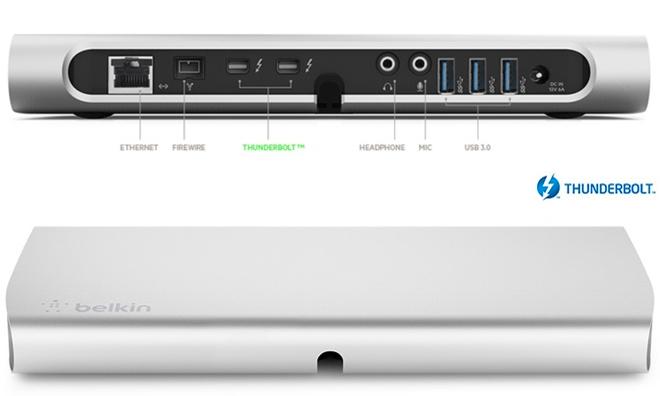Intel pushed back on Friday against allegations that it was the company's own policies that have hindered the wider adoption of Thunderbolt beyond Apple's Mac lineup, with the chipmaker saying that until now it has been more focused on the quality of its partners' devices, rather than quantity.
On Tuesday, a Digitimes report emerged blaming Intel's pricing and control policies for the lag in adoption of Thunderbolt, an I/O standard developed in conjunction with Apple and currently featured across that company's Mac line of computers. Jason Ziller, Intel's marketing director for Thunderbolt contacted AppleInsider on Friday, saying that the report was off base.
"I'm really not sure where those numbers came from," Ziller said of the wholesale prices quoted for Thunderbolt parts. "There's recommended pricing on ark.intel.com, and you can see on there that the new controllers are all under $10. Our prices have never been [as high as in the report]." "We're pleased at the rate of growth [of Thunderbolt]. We think that this year it's going to expand even further." - Jason Ziller, Intel marketing director
The report, Ziller said, also missed the mark with regard to Intel's being the sole seller of technologies critical to Thunderbolt's operation.
"The way it works is that the Thunderbolt specification lists the signal requirements for Thunderbolt technology, including on the connectors and cables," Ziller explained. "Just like any other specs, there are signal requirements, and the cables and connectors have to meet those specifications in order to make it to market. The spec is part of a license we grant, and it's a royalty-free license.
"But it's not proprietary or exclusive or anything," he said. "In fact, there are multiple suppliers that make the components."
The original, disputed report aimed to explain why Thunderbolt has seen relatively low adoption some two years after the standard's introduction. Despite the technology's capabilities — offering speeds twice as fast as USB 3.0, as well as the ability to daisy-chain devices without a hub — there are, by Ziller's own admission, only about 80 Thunderbolt-compatible products on the market today. That, the Intel rep claims, is due to a focus on quality over quantity.
"We wanted to make sure that we were working directly with these companies and that they were successful," he said.
Ziller said that early on the company was still finalizing Thunderbolt's specifications, even as it worked with a small group of vendors. Additionally, he said that Intel's certification program is more robust than those of other standards. For those reasons, Intel didn't begin licensing Thunderbolt broadly until the beginning of last year's fourth quarter.
Going forward, Intel expects the standard to see greater adoption. The company would like to see more products coming to market, and Ziller says there has been an increase not only in the number of companies developing Thunderbolt-compatible devices, but also the number of devices each company is working on.
"We're pleased at the rate of growth," Ziller said, noting that the standard currently has over 220 licensees, with many of those having come since the fourth quarter of last year. "We think that this year it's going to expand even further."
AppleInsider contacted DigiTimes for comment on Intel's responses and will update this article should the publication reply.



